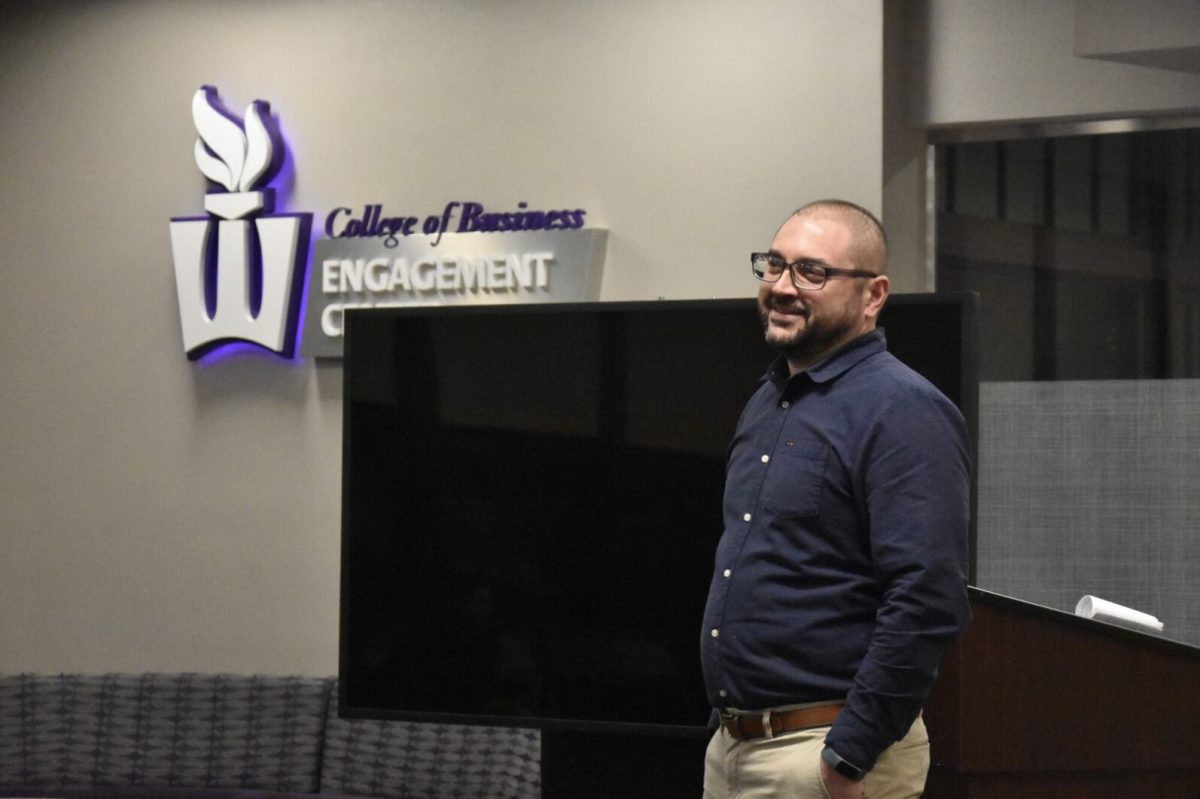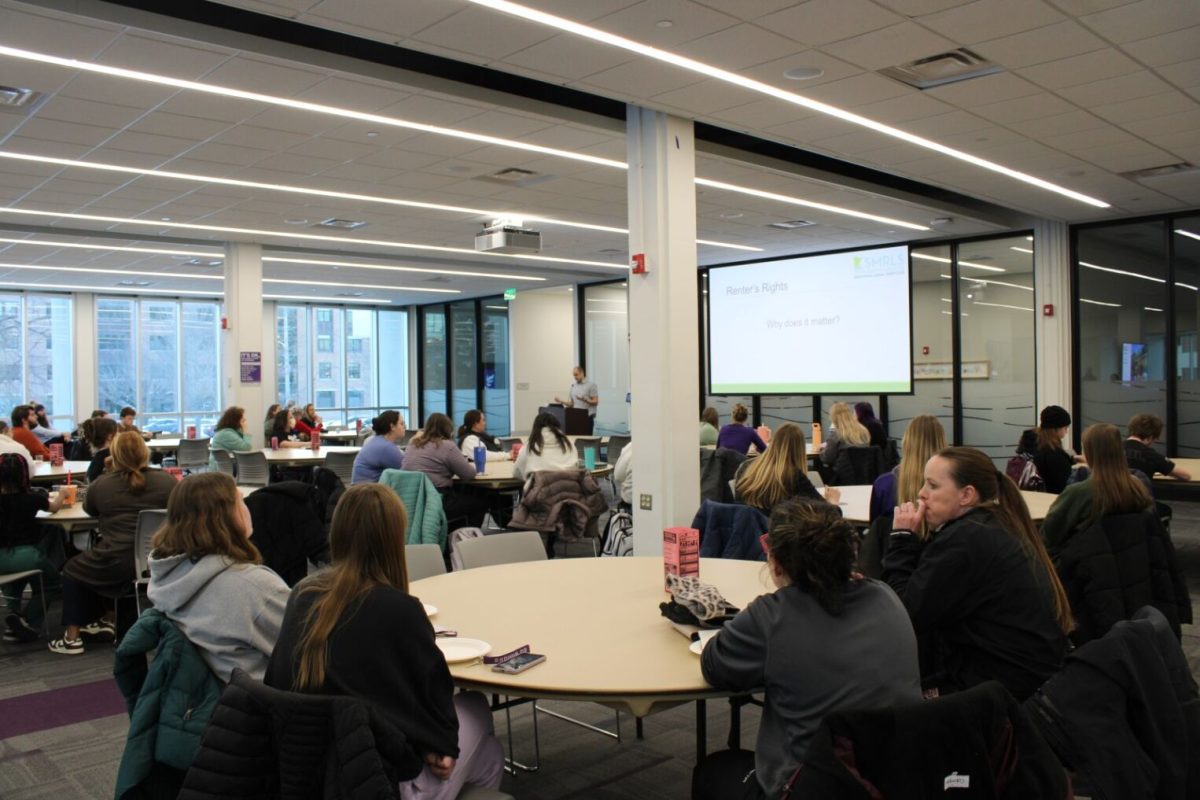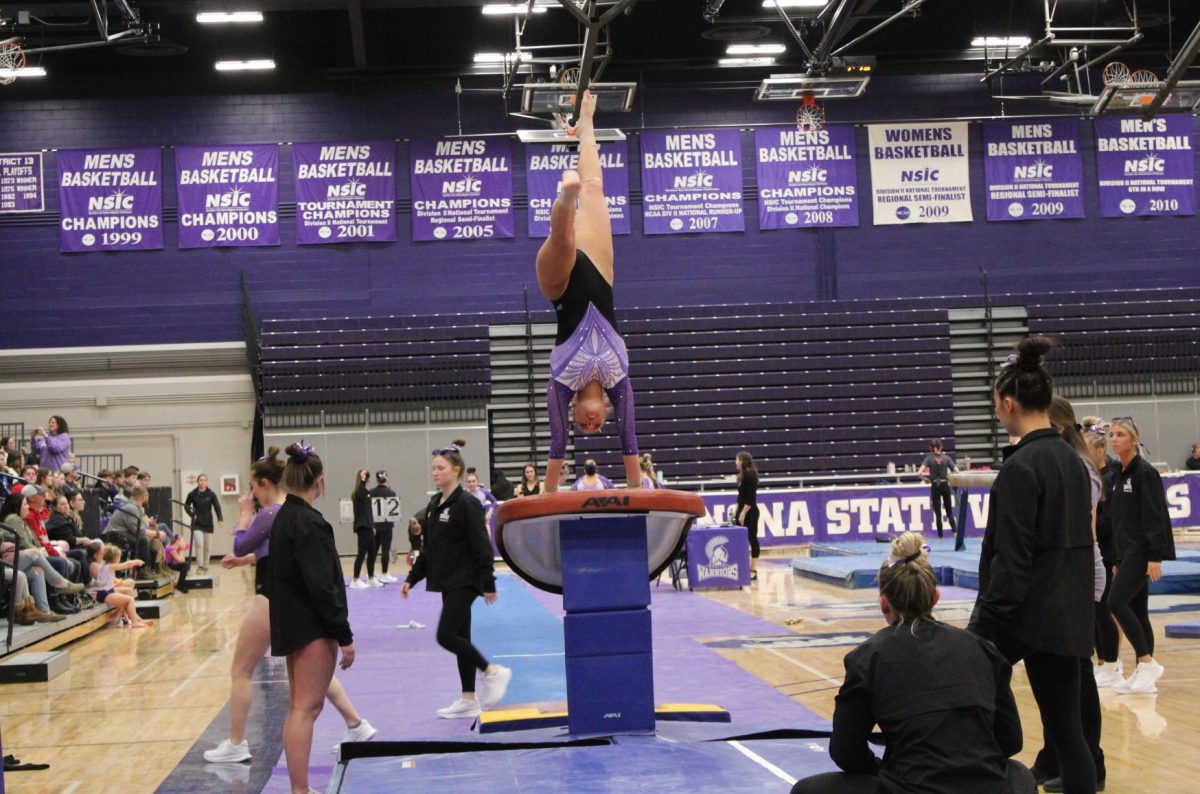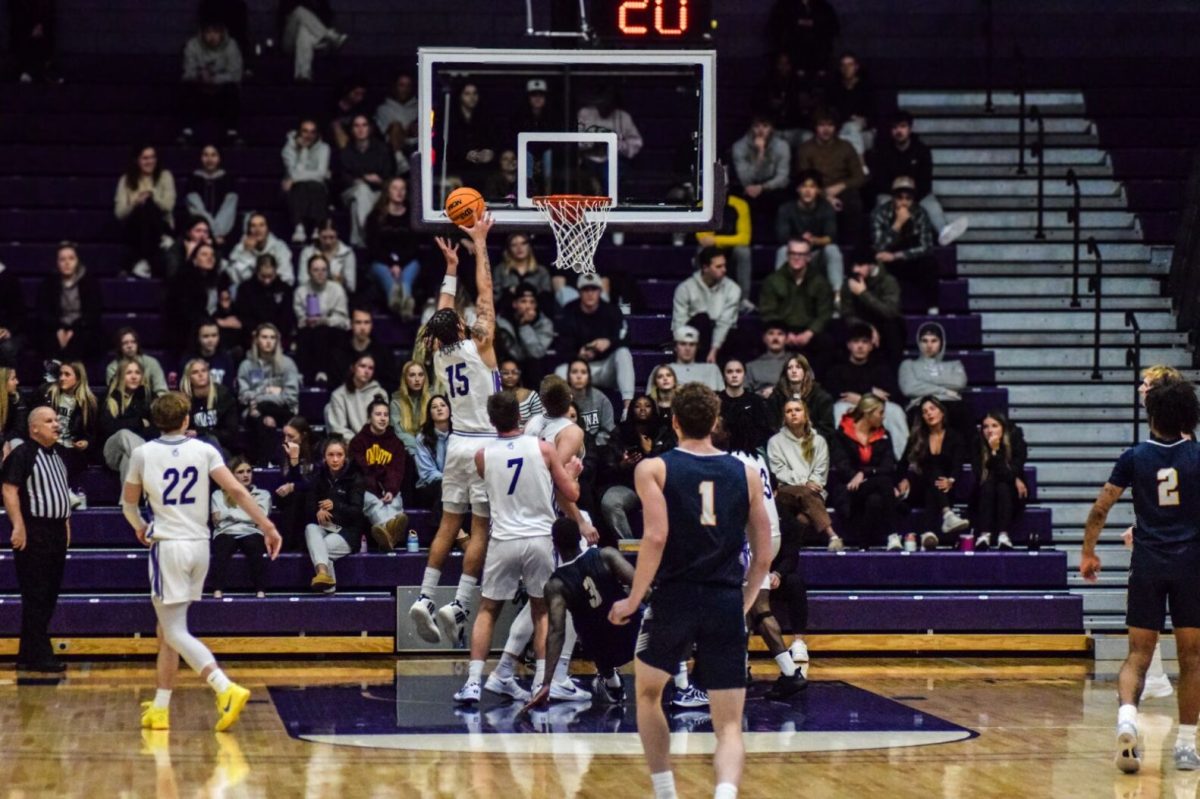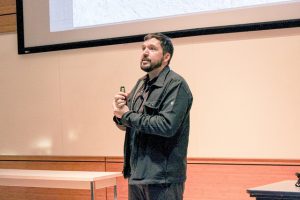
Michaela Gaffke/Winonan
The founder and director of “Hybrid Pedagogy,” a digital journal, spoke on Monday, Nov. 9 at 7 p.m. in Stark Hall room 120. Jesse Stommel, an assistant professor at University Wisconsin-Madison, discussed the importance of flexibility of learning styles in the classroom in his presentation, “A Cacophony of Voices: Agency and Digital Pedagogy.”
Stommel discussed a class where he assigned his students to take an Emily Dickinson poem, remove the words and turn it into something else. He said it was a more stripped down assignment and told his students to reflect on the process in a blog.
He said the importance in the assignment was the students’ reflection and the discussion on why they did what they did.
Stommel said an epiphany is most valuable in the learning place, which cannot be measured in a study or a statewide assessment.
“Pedagogy is the place where philosophy and practice meet,” Stommel said.
Ridding the classroom of certain tools implies that every student learns the same way. He added platforms that dictate too strongly how we might use them, or remove our agency, must be ruled out by critical digital pedagogy.
“Devices are used at different times, by different people and for difference purposes,” he said.
Stommel said every student could become distracted by different factors.
He mentioned sitting next to a student on Facebook on their laptop would not distract him. He explained that distractions can occur in different forms.
Stommel said he wants students’ minds to wonder, because that is when they have their epiphany moments in learning.
“Stop admonishing students for looking out a window in class,” Stommel said.
Face-to-face conversation is not always the most intimate and everybody finds ways to experience intimacy regardless of the setting, he said.
“Outcomes for an assignment happen over time through the work of each group of students,” he said. “If I articulate outcomes too clearly at the start, students are less able to articulate them.”
Stommel said standardized testing could be better if people were to think critically about it.
He asked the audience to look around the room so they could observe what was in it and how it could affect learning.
Stommel said the room was unmovable; it was permanently in the position it was in, because the students’ seats do not move.
“But how can we move them?” he asked. “How can we shift conversation in spite of the difficulties?”
Stommel said, “Rather than doing elaborate studies of how students are learning, how about we just ask them?”




